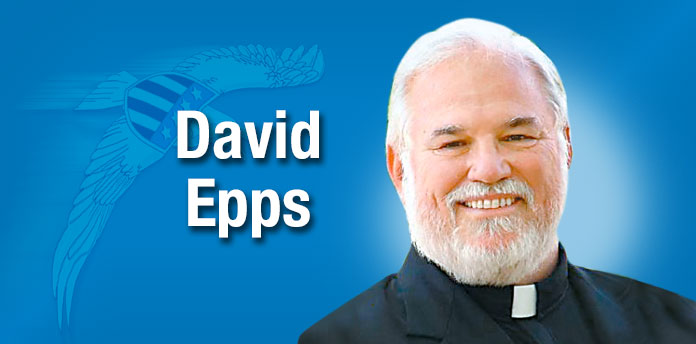I read someone once that, after a pastor has been in a church for five years, 15% of the congregation are ready for a change. It’s nothing personal, and these folks may actually love their pastor. However, that 15% of the people tend to embrace change of any kind.
Most of us are the opposite. We resist change. Not all change, of course, but, if it disrupts our daily life, we tend to put up a defense. My wife is more likely to embrace change while I am the one that tends to resist.
Twice in the last thirty-five years or so, we have moved from one house to another. We had purchased a small house in Peachtree City, and I was quite content. After a few years, and as the three boys grew from kids into teens, my wife wanted a bigger house with more room. I resisted. It took a good while, but we bought a home with a Sharpsburg address.
Then came the swimming pool. Our kids were now having kids of their own and, the argument went, this would be a good thing for the family. Again, it took a few years, but I agreed to put a swimming pool into our perfectly fine backyard. I came to enjoy the pool myself and became extremely attached to my home. It became a place of family gathering, of solitude when I needed it.
The church I now serve was birthed in the living room of that house and we had midweek meetings there for years. And then change came once again.
My eldest son and my wife teamed up to argue that, as we were getting older, we should sell our home and build next to him in rural Senoia. My resistance went into overdrive.
For one thing, we were only a quarter mile from the church, and the new place would be about 15 miles. The home we would build would be a third the size of the Sharpsburg home. At the end, I agreed. But this time the change was much more difficult for a variety of reasons. It took me over a year after we moved to really get settled.
I discovered that, as we age, most people who are in the “resistance to change” group, become less and less open to change whatever the benefits of the perceived change. We become, as my mother used to say, “set in our ways.”
I remember the first churches that I pastored. All were, at the time, over 100 years old. My denominational leader gave me the advice to “just preach, marry, bury, visit the sick, get along with the people, and don’t rock the boat.”
It was good advice. Being only 24 years old and full of ideas, I didn’t take it. I introduced change after change, all of which I believed would benefit the church and lead to growth. It didn’t work out that way.
It was a valuable lesson learned in the School of Hard Knocks. In less than three years, I resigned that assignment, blaming the church people, especially the leadership of the church, and feeling like a miserable failure.
I think that most people who know me would say that I am open to new ways and new ideas. The people who know me really well would probably say that I must be convinced. The truth is that both are correct. I work at being open to new ideas and concepts. When it comes to traditional values and adherence to the principles upon which the Church has been founded and has been teaching for centuries, I am, for the most part, “set in my ways.”
On the other hand, I realize that people, especially the younger folks, have enthusiasm, new ideas, and a willingness to take risks to see their ideas and dreams come to fruition. Several new ministries were birthed during the past year of the pandemic.
While most of the world outside the church was on lock-down, folks younger than me rose to the occasion and implemented a number of ideas that bloomed into full blown ministries. All change is not bad. Some change is downright healthy.
But it’s not just the 15% crowd or the ageing population that is disturbed my change. For the past fifteen years, or so, I have had a beard. Being of a certain girth and having white hair, I have often been mistaken for Santa at Christmastime. In fact, I own a Santa suit. I have played the role on a few occasions. A few days ago, I shaved it off and posted a few photos on Facebook.
I think my family was the most vocal about the change. My 16-year-old granddaughter wrote “Tape it back!” One of my grandsons in his 20s and recently discharged from the Marines, wrote, “I am … distraught.” My middle son replied, “I hope this is a joke? Some app?” My eldest son said something like, “Noooooo!” A church member shared, “Wait?! Did you REALLY do this?!”
I must admit that the face looking back at me in the mirror is a stranger. An older guy than I remember and one that looks a lot more like my father at this age. Indeed, I startled myself the other night when I went into the bathroom in the middle of the night and there was a stranger in the mirror.
I love the home I now occupy, though it took some time. It’s a peaceful place, a refuge from the clamor of the world. I haven’t decided on the beard yet. It will grow back, so there are options. One thing in life is certain — there WILL be change, like it or not. We can resist it but as the Borg said, “Resistance is futile.”
We can moderate it, embracing some things and discarding others. We can accept every change, but not all change is good. Or we can be flexible and open-minded enough to realize that change can also mean opportunity.
By the way, those first churches that I served 45 years ago? They are still there and, it seems they have done just fine without me and all the changes I proposed. Still, sometimes I wish I had stayed there longer and fought for change a little harder. But, for most people, change, especially changed imposed from the outside, is hard. But change will come. How we respond to it and what we do with it is what really matters.
[David Epps is the Rector of the Cathedral of Christ the King (www.ctk.life). The church is open at 10:00 a.m. on Sundays but is also live streaming at www.ctk.life. He is the bishop of the Diocese of the Mid-South (www.midsouthdiocese.life). He may be contacted at [email protected].]













Leave a Comment
You must be logged in to post a comment.